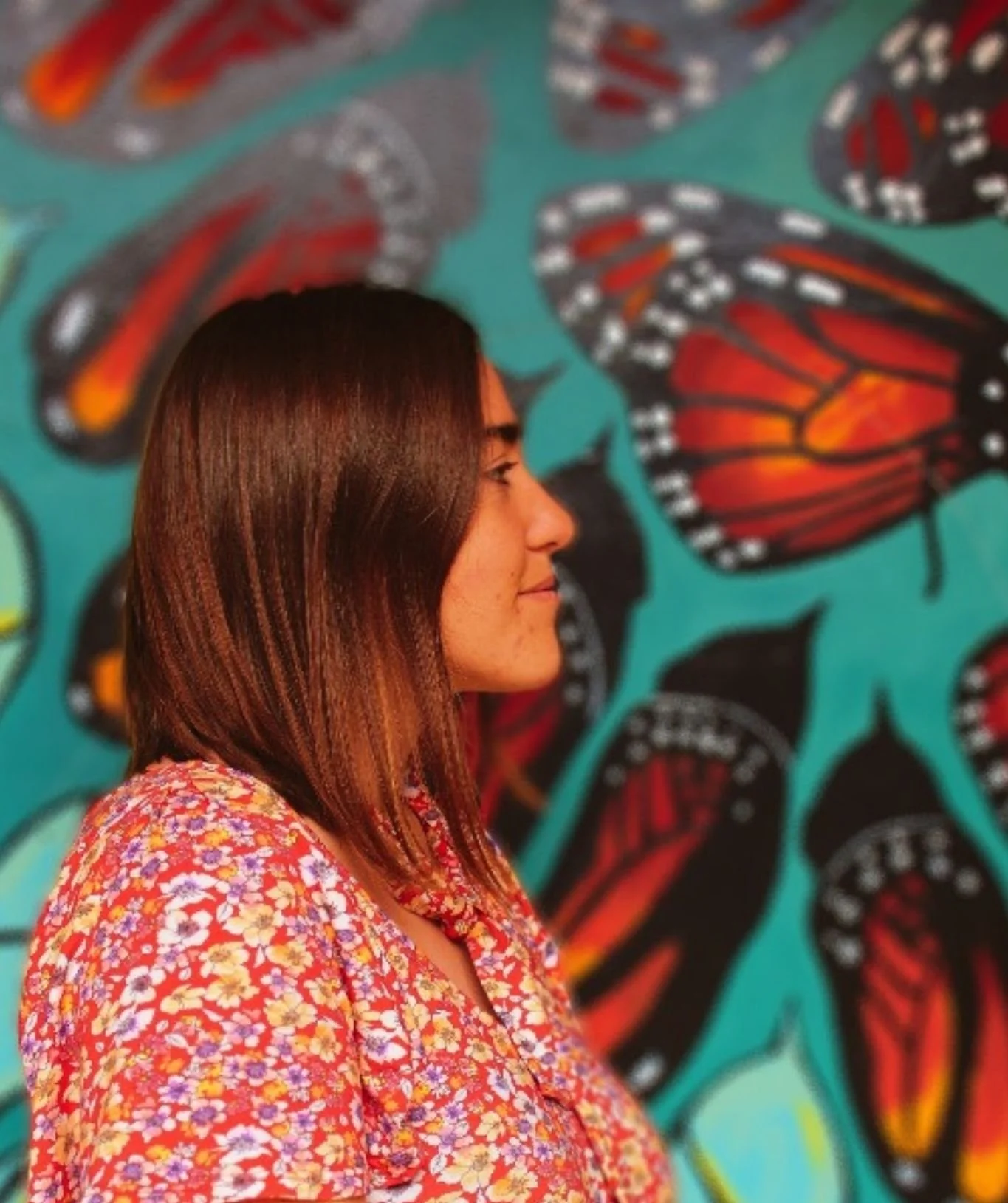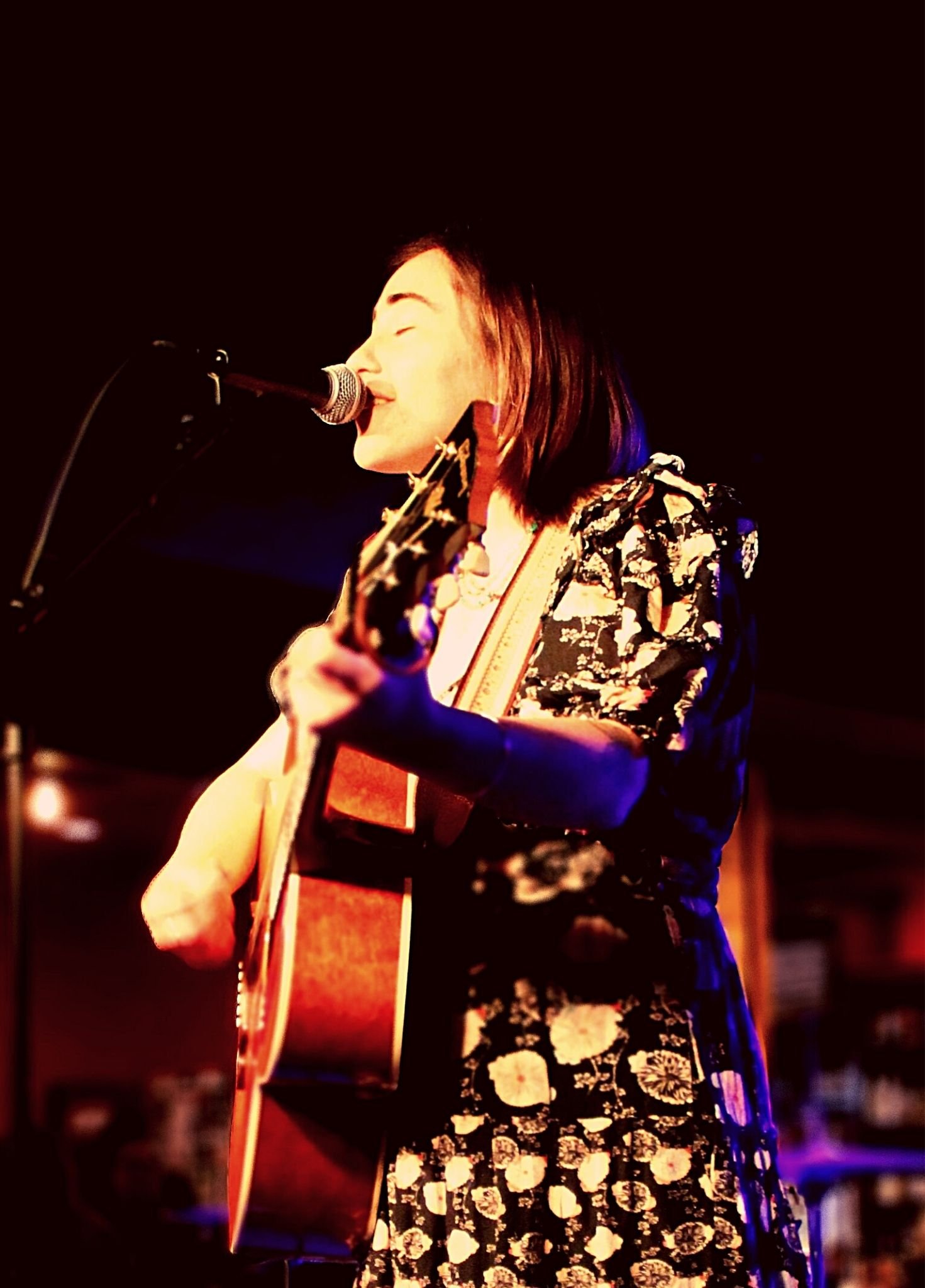From The Outside In: A Conversation with Margo Cilker
Photo by April Massey
Margo Cilker does not need to be in the south to make a good country song. Originally from California, Cilker has traveled the world, picking up threads and sewing them into her music's broad tapestry. Cilker’s biting lyrics cut through harmonizing guitars and stout piano keys, calling on the tradition of sweet-voiced country mavens delivering hard truths. Her debut album, Pohorylle, touches on subjects of abuse, subjugation, and dishonest male troupes, while also speaking earnestly of the places she loves. I recently talked to Margo Cilker ahead of her sold-out show, opening for Hayes Carll at The Olympic venue in downtown Boise, Idaho. Cilker will be returning to Boise for her headlining tour on June 3rd at The Neurolux. This interview was conducted on a bench outside Sid’s Garage in downtown Boise, Idaho.
AM: For your latest album, Pohorylle, you were able to assemble a significant group of musicians, including Jenny Conlee from The Decemberists and John Morgan from Neko Case; how did working with these musicians shape the way this album was made?
Margo Cilker: Teaming up with Sera Cahoone was the first step, then she brought in Jenny. We did not know we wanted such a piano-heavy album until Jenny came in. Sera is very organized in the studio, but she also wants to see what happens with the songs. She will give the musicians room to play what they feel like playing. We did not always hear the part; we let it come to us from the musicians instead of telling them exactly what to do, which allowed it to take life.
AM: You collaborate with your sister Sarah on a lot of your work, and she often tours with you; is having that kind of sister dynamic featured in your music important to you?
Margo Cilker: Yes, it is very important to me. During COVID, we lived in different states, but now that we are back touring together, we get to spend more time with each other again. Anytime we are in a shared space, like walking around the house or something, we will start humming songs together. We are just on a very similar wavelength. For so much of our lives, we were together like two peas in a pod; it just makes sense to bring that into the music. The same kinds of things move our spirits. Working with family has its ups and downs, but it is something really special. It is more fulfilling at the end of the day, and it is great practice in patience.
AM: You have stated that you have always had a bit of wanderlust. Outside of touring, you have spent time in Oregon, Washington, Spain and grew up in California; do you consider yourself more of a world citizen? How do you think that influences your music?
Photo by April Massey
Margo Cilker: I am drawn to country music, which is a genre that is so tied to place, and that is such an important part of it. But I love to zoom out. Something that was cool for me living in Spain was seeing country music from the outside. The U.S. music scene can sometimes be really insular; we have this “world music” category that we kind of shlep off. We otherize so much good music that does not fit into what our little vision of mainstream music is. I grew up in the bay area of California. That place is beautiful, and I love it dearly, but I have always known that I wanted to keep looking for a new place. I still have not found my forever home. I like a little bit of uncertainty; I do not like knowing what is next.
AM: There are songs on this album that touch on abuse and subjugation, issues that mainly affect women, while also exposing the tropes and false narratives that build up men; why was it important to highlight some of those inequalities?
Margo Cilker: I studied anthropology when I was in college; social constructs like gender are very interesting to me. I am not afraid to dig into topics that might seem taboo with my music. We all face these things on a daily basis; we are all affected by them. I want to bring these things into the spotlight, I try to do it with nuance, but I do not have all the answers. I do not want to tell people what to do, but the least I can do is open conversations. I love that I can bring these topics to a broader audience.
AM: Your music has drawn comparisons to country and folk artists like Lucinda Williams and Gillian Welch; do you think those comparisons are accurate?
Margo Cilker: If I sound like Lucinda Williams, it is for a good reason. My brain is just a never-ending loop of Lucinda Williams songs. I woke up to one of her songs on my alarm this morning. I do not pretend to be anything bigger than I am, and I am still finding my sound. Lucinda can be somber sometimes; she sings about some pretty heavy subject matter, but she is also just a rocker, so I do not mind being compared to her.
AM: How has touring changed for you since venues have reopened?
Photo by April Massey
Margo Cilker: I did not push booking during the pandemic because it was so challenging for obvious reasons. I waited until it was feasible, and with the album coming out, I was able to book some great opening slot runs with American Aquarium, this run with Hayes Carll, and opening for Sera Coohne around the Northwest. The pandemic gave me some time to not make music which allowed me to appreciate it that much more. I am in some great rooms right now, but I know the dive bars will always be there for me.
AM: Last question for you, what music is keeping you company on tour right now?
Margo Cilker: We listened to some great soul music in the car today, but I cannot remember the artist’s name. That is a hard question to answer; it is all a blur. I should have a better answer. We have been listening to Hayes Carll, of course. Donny Hathaway that is what that artist’s name is.
This interview has been edited and condensed



